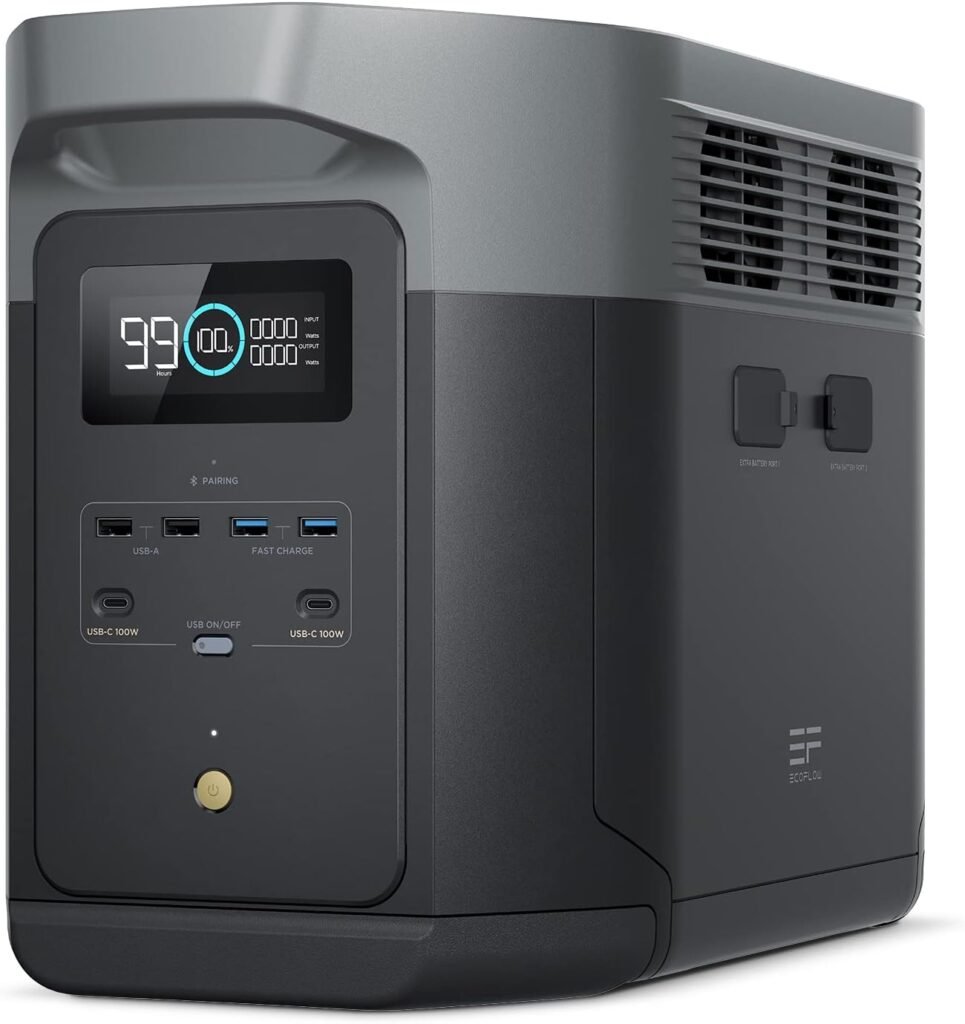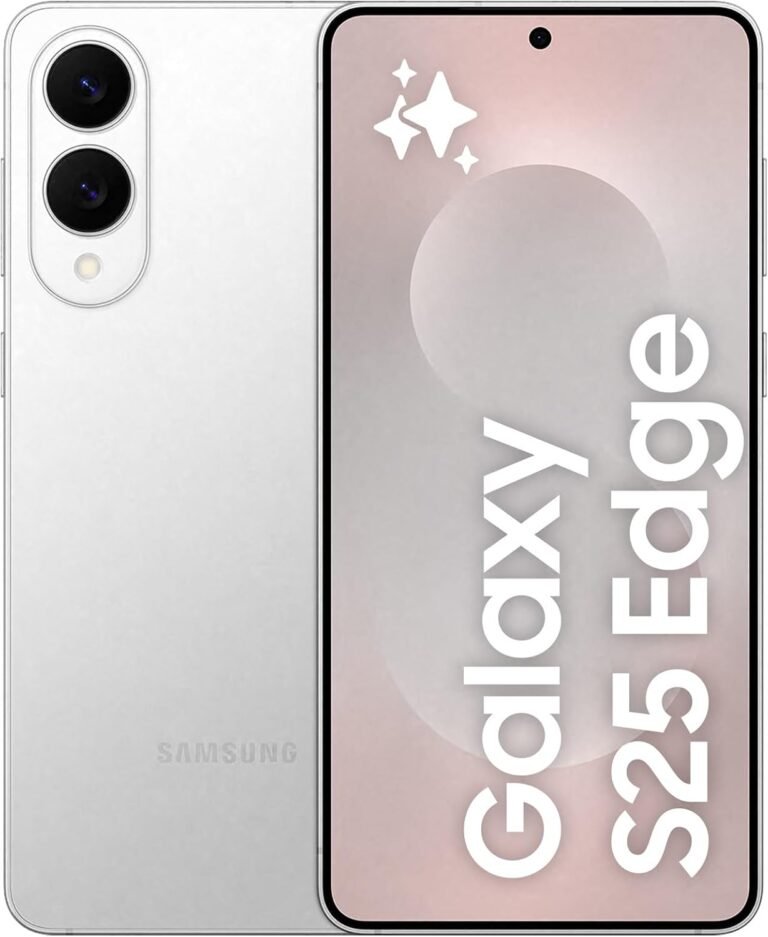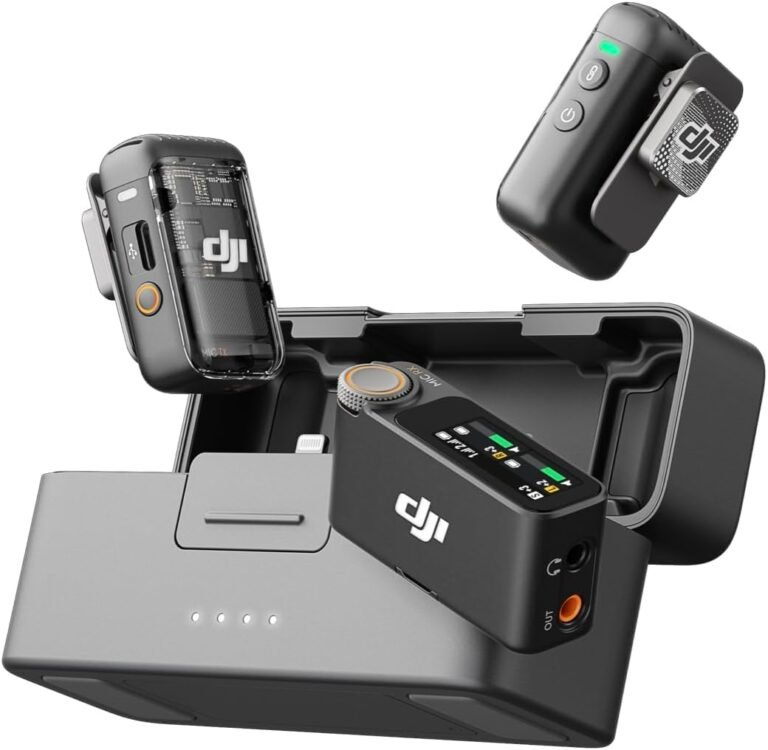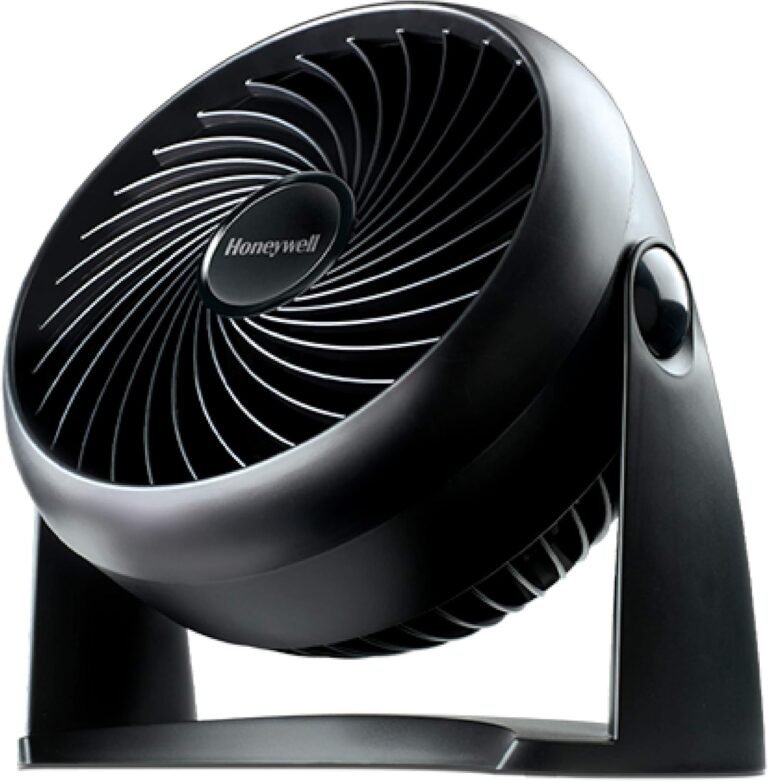Whether you’re heading off-grid for a weekend camping trip, preparing for unexpected power outages at home, or depending on a CPAP machine for a good night’s sleep, the demand for reliable portable power has never been more urgent. In the evolving world of clean energy solutions, two standout brands dominate the conversation: Jackery vs EcoFlow. Both have built a solid reputation by delivering innovative and versatile portable power stations—quiet, eco-friendly alternatives to traditional gas generators. As technology rapidly advances, their latest models come packed with powerful features, making the choice between them more complex than ever. In this in-depth comparison, we’ll break down the key differences between their top offerings to help you decide which brand and model best fits your unique energy needs.
Powering Up Your Adventures: Jackery and EcoFlow Go Head-to-Head
Portable power stations have revolutionized the way we access electricity beyond the confines of traditional power grids. These devices offer the remarkable ability to provide power anywhere, anytime, empowering us to stay connected and comfortable in a variety of situations. The core benefits of these modern energy hubs are compelling: they offer exceptional portability, ensuring that power is readily available wherever your adventures take you. Their user-friendly design makes them incredibly easy to operate, often requiring nothing more than plugging in your devices. Unlike their noisy, fume-emitting gasoline counterparts, portable power stations operate silently, allowing you to enjoy the tranquility of your surroundings or maintain a peaceful home environment. Furthermore, many models now incorporate solar charging capabilities, harnessing the sun’s energy for a sustainable and readily available power source.
Among the leading innovators in this dynamic market are Jackery and EcoFlow. Jackery has established itself as a pioneer in the solar generator industry, recognized globally for its reliable and user-friendly power solutions. With a vision to bring green energy to everyone, their products have garnered a strong reputation among outdoor enthusiasts and those seeking emergency power backup. EcoFlow has also emerged as a significant player, known for its cutting-edge technology, rapid charging capabilities, and a broad ecosystem of smart energy solutions. Both brands continuously push the boundaries of portable power technology, introducing new models with enhanced features and improved performance to meet the evolving needs of consumers.
Latest Power Station Showdown: Model-by-Model Comparison
To provide a clear and practical comparison, we will focus on some of the latest and most prominent power station models from Jackery and EcoFlow. From Jackery, the Explorer 1000 v2 and the Explorer 2000 Plus represent their recent advancements in portable power technology. On the EcoFlow side, the DELTA 3 Plus and the DELTA 2 Max showcase their commitment to innovation and user-centric design. The following table offers a snapshot of their key specifications:
| Feature | Jackery Explorer 1000 v2 | Jackery Explorer 2000 Plus | EcoFlow DELTA 3 Plus | EcoFlow DELTA 2 Max |
|---|---|---|---|---|
| Capacity (Wh) | 1070 | 2042 (Expandable to 24kWh) | 1024 (Expandable to 5kWh) | 2048 (Expandable to 6kWh) |
| Output Power (Continuous/Surge) | 1500W / 3000W | 3000W / 6000W (6000W with 2 units) | 1800W / 3600W (2200-2600W with X-Boost) | 2400W / 4800W (3400W with X-Boost) |
| Battery Type | LiFePO4 | LiFePO4 | LiFePO4 | LiFePO4 |
| AC Full Charge Time | 1.7 hours (1 hour emergency) | 2 hours | 56 minutes | 1.1 hours |
| AC Outlets | 3 | 5 | 6 | 6 |
| USB-A Ports | 1 | 2 | 2 | 4 (2 Fast Charge) |
| USB-C Ports | 2 (100W PD) | 2 (100W) | 2 (140W) | 2 (100W) |
| Expandability | No | Yes (Up to 5 extra batteries) | Yes (Up to 4 extra batteries) | Yes (Up to 2 extra batteries) |
| Special Features | App Control, Quiet, UPS | App Control, Quiet, EPS, ChargeShield, Wheels | App Control, Quiet, UPS (<10ms), IP65 Battery | App Control, Quiet, UPS (20ms) |
| Weight (lbs) | 23.8 | 61.5 | 27.6 | 50 |
Export to Sheets
This table provides a foundational understanding of the capabilities of each power station, highlighting the variations in capacity, output power, charging speeds, and key features. A closer look at the individual specifications and features will further illuminate their strengths and potential applications.
Diving Deeper: Specs and Features Breakdown
Jackery Explorer 1000 v2

The Jackery Explorer 1000 v2 boasts a substantial 1070Wh capacity, making it a reliable power source for a variety of needs. Its 1500W continuous output, with a surge capability of 3000W, allows it to power many common household appliances and electronic devices. At the heart of the Explorer 1000 v2 is a durable LiFePO4 battery, known for its exceptional lifespan, offering over 4000 charge cycles and a potential lifespan exceeding 10 years. Charging this power station is remarkably fast, achieving a full charge from an AC outlet in just 1.7 hours. For even quicker power-ups, an emergency charging mode, accessible via the Jackery app, can fully charge the unit in a mere hour. While AC charging is swift, it’s worth noting that the solar charging speed has been reduced compared to its predecessor.
The Explorer 1000 v2 is equipped with a versatile array of ports, including three pure sine wave AC outlets, two USB-C ports with 100W Power Delivery for fast charging of laptops and other devices, one USB-A port, and a DC car port. This allows for simultaneous charging of multiple devices, catering to various power needs. Special features include smart app control, which allows users to switch between different charging modes, activate an energy-saving mode, and even utilize a 30dB quiet overnight charging mode. Furthermore, it offers UPS (Uninterruptible Power Supply) functionality with a seamless switchover time of ≤20ms, providing protection for sensitive electronics during power outages. Designed with portability in mind, the Explorer 1000 v2 weighs just 23.8 lbs and features a convenient foldable handle, making it an excellent companion for outdoor adventures and emergency preparedness.
Jackery Explorer 2000 Plus

The Jackery Explorer 2000 Plus takes portable power to the next level with its impressive 2kWh (2042Wh) base capacity, which can be expanded all the way up to a massive 24kWh by adding up to five additional battery packs. This scalability makes it ideal for off-grid living and extended power outages. It boasts a powerful 3000W continuous output with a 6000W surge peak, capable of running almost all essential household appliances. For even greater power, connecting two Explorer 2000 Plus units in parallel can deliver up to 6000W of output. Like its smaller sibling, the Explorer 2000 Plus utilizes a long-lasting LiFePO4 battery, ensuring up to 10 years of lifespan with over 4000 charge cycles.
Charging the Explorer 2000 Plus is remarkably efficient, achieving a full charge from solar panels (with 6 x 200W panels) or an AC adapter in just 2 hours. It features a comprehensive selection of ports, including five AC outlets (one rated at 25A for RV use), two 100W USB-C ports, two USB-A ports, and a 12V car port. Special features include Jackery’s innovative ChargeShield technology, which employs a unique variable-speed charging algorithm to enhance battery safety and extend its lifespan by up to 50%. It also offers smart app control for monitoring and managing power usage and operates quietly at around 30dB. While the Explorer 2000 Plus weighs a substantial 61.5 lbs, it is equipped with sturdy wheels and a telescopic handle, making transportation significantly easier. Additionally, it supports EPS (Emergency Power Supply) for seamless power switching during outages.
EcoFlow DELTA 3 Plus

The EcoFlow DELTA 3 Plus offers a capable 1024Wh capacity, providing ample power for a wide range of applications. Its 1800W continuous output, with a surge capacity of 3600W, can handle the power demands of most household devices, and EcoFlow’s X-Boost technology allows it to power even appliances exceeding 2200W continuously. The DELTA 3 Plus utilizes a durable LiFePO4 battery with over 4000 charge cycles and a potential lifespan of up to 10 years. Notably, the battery pack features an IP65 rating, offering resistance against water splashes and dust, enhancing its durability in various environments. One of the standout features of the DELTA 3 Plus is its incredibly fast charging capability. With 1500W AC input, it can charge from 0 to 80% in just 40 minutes and achieve a full charge in a mere 56 minutes. Solar charging is also efficient, reaching a full charge in approximately 70 minutes with a 500W input. Additionally, it supports charging via a car outlet and EcoFlow’s smart generator.
The DELTA 3 Plus is equipped with a generous array of ports, including six AC outlets, two high-powered 140W USB-C ports, two USB-A ports, one car power output, and two DC5521 ports. Special features include a smart energy management system accessible through the EcoFlow app, offering real-time monitoring, customizable charging speeds and power schedules, and even storm and outage alerts. It operates with ultra-quiet performance, producing less than 30dB of noise under a 600W load. Furthermore, the DELTA 3 Plus functions as a true UPS (Uninterruptible Power Supply) with an exceptionally fast switchover time of less than 10ms, ensuring uninterrupted power for critical devices. Weighing in at 27.6 lbs with a compact design, the DELTA 3 Plus strikes a good balance between power and portability. Its capacity can also be expanded up to 5kWh by integrating with EcoFlow’s ecosystem of extra batteries.
EcoFlow DELTA 2 Max

The EcoFlow DELTA 2 Max offers a substantial 2048Wh capacity, providing significant power for extended use. Its robust 2400W AC output, with a surge capacity of 4800W, can power a wide array of appliances, and the X-Boost technology allows it to handle devices up to 3400W. The DELTA 2 Max is equipped with a long-lasting LiFePO4 battery, providing over 3000 charge cycles before reaching 80% capacity, translating to approximately 10 years of daily use. Charging is remarkably fast, achieving an 80% charge via AC in just 43 minutes and a full charge in 1.1 hours. Solar charging is also efficient, fully recharging the unit in about 2.3 hours with a 1000W input. It also supports car charging for on-the-go power replenishment.
The DELTA 2 Max features an extensive selection of output ports, including six AC outlets, two 100W USB-C ports, two standard USB-A ports, two USB-A fast-charge ports, a 12V car port, and two DC5521 ports. Special features include smart app control for managing energy usage and setting automations, quiet charging with noise levels starting as low as 30dB, and UPS functionality with a 20ms switchover time for seamless power continuity. The capacity of the DELTA 2 Max can be expanded from 2kWh to 6kWh by connecting up to two additional smart extra batteries, providing even greater power резерв for extended needs. While weighing 50 lbs, it incorporates handles for easier portability.
When They May Come In Handy
Camping Under the Stars
For those who love to venture into the great outdoors, both Jackery and EcoFlow power stations offer a significant upgrade from relying solely on car batteries or noisy generators. The Jackery Explorer 1000 v2 and the EcoFlow DELTA 3 Plus, with their lighter weights, are particularly well-suited for car camping, easily fitting into the trunk and providing ample power for lights, portable coolers to keep food and drinks fresh, and even small electric stoves for cooking. They can also keep your essential devices like phones and cameras charged, ensuring you stay connected and can capture those memorable moments. For longer camping trips or when needing to power more demanding appliances, such as a portable refrigerator for an extended period, the higher capacity Jackery Explorer 2000 Plus and EcoFlow DELTA 2 Max provide a more robust solution. Both brands also offer compatible solar panels, allowing you to recharge your power station using sunlight, extending your off-grid adventures without needing to find a power outlet.
Home Backup for Peace of Mind
Power outages can be disruptive and even dangerous, but a reliable portable power station can provide peace of mind by keeping essential devices running. The Jackery Explorer 1000 v2 and EcoFlow DELTA 3 Plus are excellent options for backing up critical electronics like lights, internet routers to stay connected, and even medical devices. The UPS functionality offered by both ensures that sensitive equipment like computers and certain medical devices receive uninterrupted power during an outage. For longer power outages or the need to power larger appliances like a refrigerator to prevent food spoilage, the higher capacity Jackery Explorer 2000 Plus and EcoFlow DELTA 2 Max are more suitable. The ability to expand the capacity of these models with extra batteries provides an added layer of security for extended power needs.
Staying Connected: Powering Your CPAP Machine
For individuals who rely on CPAP machines for sleep apnea therapy, having a reliable power source is crucial, especially when camping or during home power outages. Both Jackery and EcoFlow power stations can effectively power CPAP machines overnight. The power consumption of CPAP machines typically ranges from 30 to 60 watts per hour, but models with heated humidifiers can draw significantly more power, between 70 and 100 watts per hour. Considering the capacity of each power station, the Explorer 1000 v2 and DELTA 3 Plus can provide several nights of power for a basic CPAP machine, while the Explorer 2000 Plus and DELTA 2 Max offer even longer runtimes. For optimal efficiency, using a DC output or a DC adapter specifically designed for your CPAP machine is recommended, as this avoids the power loss associated with AC inverters.
Beyond the Basics: Other Use Cases
The versatility of portable power stations extends beyond just camping, home backup, and medical devices. Professionals working at remote locations can utilize these power stations to run tools and equipment, eliminating the need for traditional power sources. While not a primary function, in emergency situations, some larger capacity models could even provide a limited charge for electric vehicles. Furthermore, these power stations are becoming increasingly popular for outdoor events, providing a silent and clean power source for lighting, sound systems, and vendor stalls.
The Final Verdict: Weighing the Pros and Cons
Jackery: The Upsides and Downsides
Pros: The Jackery Explorer 1000 v2 stands out for its excellent portability and remarkably fast AC charging capabilities. Its adoption of the LiFePO4 battery technology ensures a long lifespan, and the quiet operation along with smart app control adds to its appeal. The Jackery Explorer 2000 Plus offers significant advantages with its high and expandable capacity, rapid charging via both solar and AC sources, and a durable LiFePO4 battery. Its quiet operation and the inclusion of wheels further enhance its usability. Overall, Jackery is a brand known for the reliability and ease of use of its products.
Cons: The Explorer 1000 v2’s solar charging is slower compared to its previous version, and some users have reported occasional app connectivity issues. Its output is also limited to 1500W. The Explorer 2000 Plus, while powerful, is heavier than some competing models, and its wheels may not be ideal for all types of terrain. It also offers fewer output ports compared to some alternatives. It’s worth noting that some older Jackery models utilized battery chemistries with shorter lifespans.
EcoFlow: The Strengths and Weaknesses
Pros: The EcoFlow DELTA 3 Plus shines with its exceptionally fast charging speeds for both AC and solar power, along with its expandable capacity. Its true UPS functionality and smart app control provide added convenience and protection, and its quiet operation and the IP65-rated battery pack enhance its versatility. The EcoFlow DELTA 2 Max also boasts high and expandable capacity, rapid charging, and a large AC output with X-Boost technology. Its long-lasting LiFePO4 battery, quiet charging, and UPS functionality make it a strong contender. EcoFlow products are generally feature-rich, offering advanced app control and multiple charging options.
Cons: Some users have reported overheating issues and loud fan noise with the DELTA 3 Plus under heavy load. There have also been mentions of potential issues with two-prong power plugs. The DELTA 2 Max, while powerful, is heavier than some alternatives , and some users have experienced minor operational issues. A recurring point is that EcoFlow’s solar panels can be quite expensive , and some users have reported challenges with their customer service.
Conclusion
Both Jackery and EcoFlow offer compelling portable power stations, each with their own set of strengths. Jackery excels in providing reliable and user-friendly solutions, with the Explorer 1000 v2 being a great choice for those prioritizing portability and fast AC charging, and the Explorer 2000 Plus catering to users needing high capacity and rapid solar charging. EcoFlow, on the other hand, often leads the way in innovation, offering incredibly fast charging speeds and advanced features like true UPS functionality, as seen in the DELTA 3 Plus and the high-capacity, feature-rich DELTA 2 Max.
Ultimately, the best choice for you will depend on your individual power needs, intended use cases, and budget. Consider how much capacity and output power you require, whether portability is a key factor, and if features like ultra-fast charging or seamless UPS are essential. By carefully weighing these factors against the pros and cons of each brand and their latest models, you can confidently select the portable power station that will best empower your adventures and provide reliable power whenever and wherever you need it.
This post contains affiliate links. If you click on a link and make a purchase, I may earn a small commission at no extra cost to you. This helps support Tech Info Central and allows me to keep creating helpful content. Thank you for your support!







